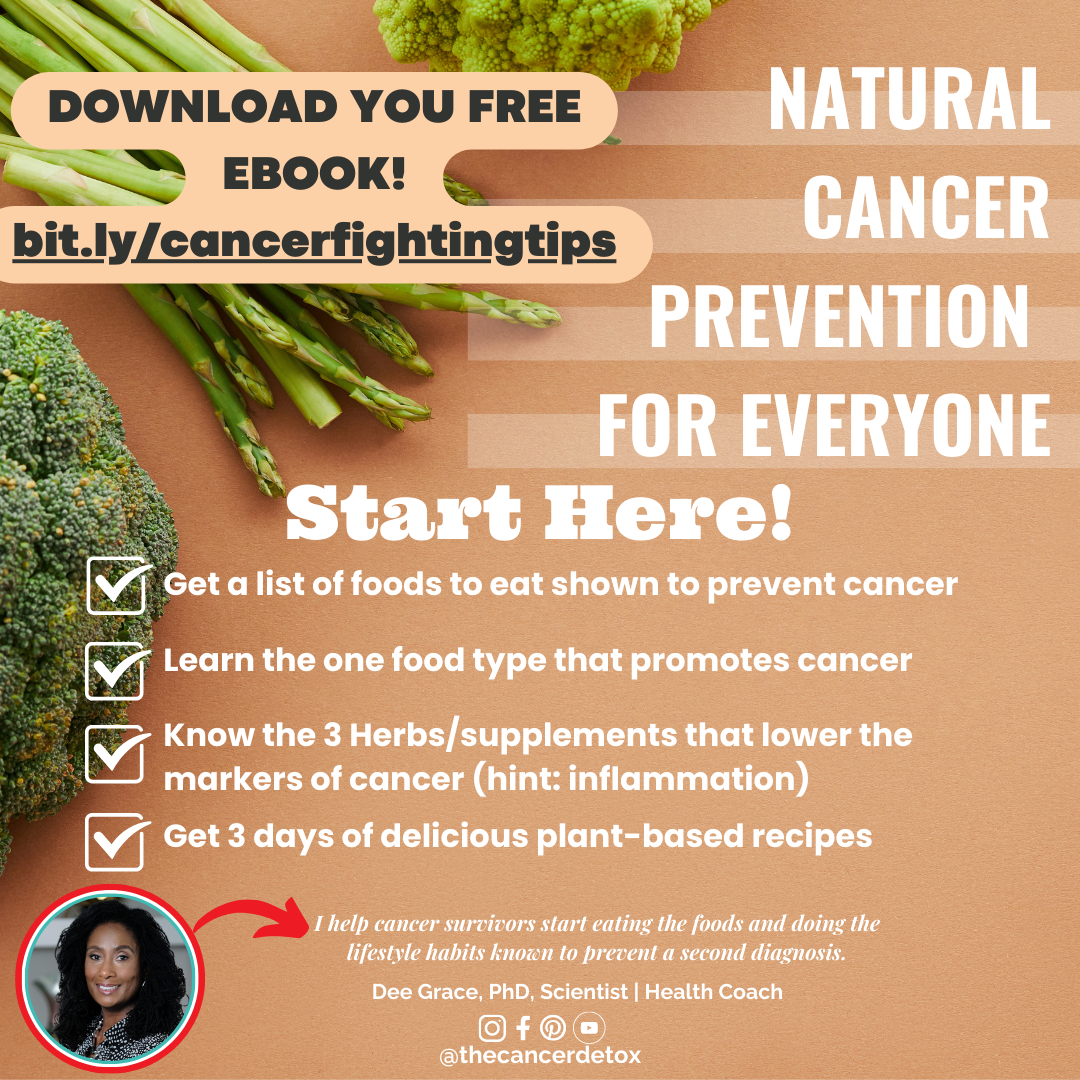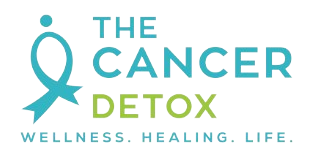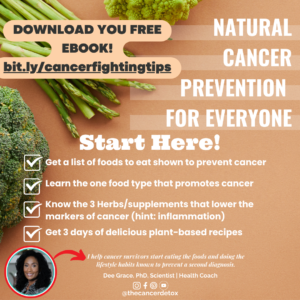
What Is THE Best Prostate Cancer Diet?
What is THE best prostate cancer diet? One that feeds body and soul? We’ll discuss this in the article below.
ARTICLE SUMMARY AND MORE RESOURCES
- The best prostate cancer diet is a vegan diet that is rich in vegetables, fruits, and legumes.
- A recent study showed this type of diet significantly lowered PSA levels in men with early-stage prostate cancer
- Self-care (in the form of physical activity, yoga, and meditation) was also incorporated into the lifestyle of these men.
- LEARN MORE about anti-cancer diets here:
- DOWNLOAD your FREE eBook on 7 Tips to Conquer and Prevent Cancer Naturally, which is our short list of what to eat for cancer prevention and 3 days of plant-based recipes.
- Schedule a complimentary call with me here. Want to know what to eat to prevent a new or recurring cancer diagnosis? Recently diagnosed with cancer and need a list of questions to ask your doctor? Contact me today.
INTRODUCTION
Rob, a 40-something-year-old man newly diagnosed with prostate cancer, signed up for health coaching from me. His prostate cancer was caught early enough that his healthcare provider put him on the “watch and wait” list so he wanted to super-charge his health transformation. The problem was he was too confused about where to start: what to start eating and what to start doing.
Rob had two critical questions he wanted answered: what did he need to do to stop the cancer from growing, and what cancer-fighting foods should he start eating?
The best prostate cancer diet to prevent a recurrence, or at least reverse the markers of prostate cancer disease, has roots in Dr. Dean Ornish’s study. This study enrolled a group of men with early stage prostate cancer and they had a lifestyle overhaul, which I review below.
But first, let’s talk about Rob’s life before his diagnosis.
PRO-CANCER FOODS
Rob was a fast-food connoisseur. As a busy professional, he barely had time for eating, let alone finding restaurants that offered healthy breakfast or lunch options. He knew that there was a connection between fast food and cancer but needed some convincing on why fast foods are pro-cancer foods he should avoid if he wanted to prevent a prostate cancer recurrence.
The two key pro-cancer foods below I had to impress upon him to avoid are:
- Sausage and other processed red meat (contains the toxins nitrates and nitrites, both are cancer-causing agents)
- Hamburgers – (the toxin PhIP is formed during the mass cooking of fried beef)
These 2 foods negatively impact healthy cells and they were the foods that Rob loved to eat. The toxins produced in the cooking process of these two foods cause DNA mutations that can turn a healthy cell into a cancerous cell.
So how did Rob handle his health transformation?
PROSTATE CANCER DIET
Rob and I had to focus on gradually replacing the foods he was addicted to that created a cancerous environment to begin with: sausage and hamburgers. These foods not only satisfied his hunger but he enjoyed eating them.
The approach I suggested to make the health switch was the following:
- Add in colorful vegetables with higher starch content, such as sweet potatoes, that would keep him full longer but were also high in nutrients (colorful vegetables have chemopreventive agents like flavinoids)
- Gather a list of restaurants near his job that offer healthier food and only order from there
This made an immediate impact right at the start of his 6-week Health Coaching program, and Rob left with the tools he needed for lasting health transformation he could draw upon day after day, month after month, and year after year to stay focused on a prostate cancer prevention diet.
- Schedule a complimentary call with me here and get cancer prevention info that cuts through the hype with a list of the top 10 cancer-fighting foods and 3 lifestyle habits that cancer hates for you to do. All are based on science.
Now, onto Dr. Dean Ornish’s study. There were 93 men with early-stage, biopsy-confirmed prostate cancer enrolled in the trial. The early-stage prostate cancer was based on laboratory test results. Typically healthy prostate-specific antigen (PSA) levels are between 4 – 10 ng/mL with a Gleason Score of less than 7 (PSA is a protein in blood that indicates the presence of prostate cancer; the higher the levels, the more advanced the prostate cancer).
The men who went on Dr. Ornish’s prostate cancer diet were able to impact their prostate disease markers in the following ways:
- Half of the men went on a vegan diet and after 1 year their PSA levels were shown to have significantly decreased
- The group of men who did NOT eat a vegan diet saw an increase in their PSA levels during the one-year period
- Six of the 43 men in this group had to undergo standard prostate cancer treatment (e.g., surgery (prostatectomy), radiation, or chemotherapy) because of their increased PSA levels
- The scientists in this study noted that the more intense the lifestyle change (the higher the adherence to the vegan diet and self-care activities), the more impactful it was on lowering PSA levels.
- Men who ate the vegan diet for one year also avoided standard prostate cancer treatment (e.g. surgical removal of the prostate, chemotherapy, and radiation).
The cancer-fighting foods they consumed were the following:
- Eating a diet rich in fruits, vegetables, whole grains, and legumes, and supplemented with soy, vitamins, and minerals resulted in a decrease in their PSA levels
The self-care activities they participated in included the following:
- Moderately intense exercise
- Yoga/meditation
- Participate in a weekly support group
REFERENCES:
Ornish D, et al. Intensive lifestyle changes may affect the progression of prostate cancer. J Urol. 2005;174:1065



